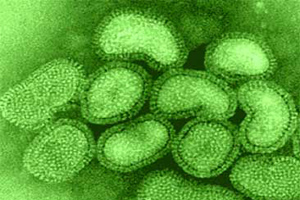China: Lab reveals H7N9 source

The H7N9 avian influenza has been attributed to genetic reassortment of wild birds and chickens from east China acoording to a top Chinese research lab.
The researchers found that no genes in H7N9 were traceable to pigs, thus excluding pigs as intermediate hosts for the deadly new strain of bird flu, the Chinese Academy of Sciences’ Key Laboratory of Pathogenic Microbiology and Immunology said on Wednesday.
According to the researchers, the genetic reassortment is likely to have occurred in east China’s Yangtze River Delta areas covering Shanghai, Zhejiang and Jiangsu. They found that a virus carried by wild birds from the Republic of Korea and other east Asian regions mingled with the avian influenza virus carried by ducks and chickens in the Yangtze River Delta during migration.
The lab’s research shows the H7 and N9 gene segments in H7N9 are similar to those in avian influenza samples collected from wild birds from east Asia, while the other six genes are traceable to chickens in China’s Shanghai, Zhejiang and Jiangsu.
As to why the H7N9 is less harmful to the animals than to humans, researchers said it’s because of viral mutation, adding that they had monitored the mutation of the N9 genes. Animal experts and scientists have stepped up monitoring of bird migration paths to prevent the H7N9 from spreading, according to the China Wildlife Conservation Association. The new bird flu has killed nine of the 33 people infected with H7N9 in the country.
Some have speculated that the new virus is related to the dead pigs found floating along Shanghai’s Huangpu River last month, though local government has repeatedly underlined that this is not the case.













